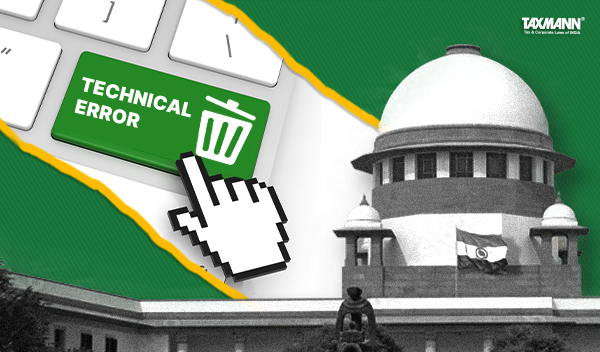Technical Error in Claiming IGST Credit as CGST/SGST Does Not Constitute Wrongful Availment of ITC | HC
- Blog|News|GST & Customs|
- 2 Min Read
- By Taxmann
- |
- Last Updated on 15 February, 2025

Case Details: Joint Kalleppuram Metals v. Union of India - [2025] 171 taxmann.com 32 (Kerala)
Judiciary and Counsel Details
- Bechu Kurian Thomas, J.
-
Karthika Maria, Anil Sebastian Pulickel, Arun Thomas, Shinto Mathew Abraham, Joe S. Adhikaram, Mathew Nevin Thomas, Veena Raveendran, Leah Rachel Ninan, Anjaly Elias, Shyni William, Navya Seby & Kurian Antony Mathew, Advs. for the Petitioner.
-
Dr. Thushara James, Sr. Govt. Pleader & V. Girishkumar, SC for the Respondent.
Facts of the Case
The assessee, a partnership firm engaged in wholesale trading of iron and steel, was subjected to scrutiny of its returns for the financial year 2017-18. During the assessment, the tax authorities alleged that the assessee had incorrectly availed Central Goods and Services Tax (CGST) and State Goods and Services Tax (SGST) input tax credits instead of Integrated Goods and Services Tax (IGST) credit. A notice was issued, contending that the IGST credit had been erroneously classified as CGST and SGST, leading to an alleged wrongful availment of input tax credit (ITC).
Based on this allegation, the Adjudicating Authority confirmed the demand, along with interest and penalty, under Section 73(1) of the Central Goods and Services Tax Act, 2017 (GST Act). The assessee, aggrieved by the decision, filed a writ petition challenging the imposition of demand and penalty on the ground that the classification error did not result in any actual loss to the revenue.
High Court Held
The Hon’ble Kerala High Court held that the assessee’s misclassification of IGST credit as CGST and SGST was a mere technical error rather than a wrongful claim of ITC. The Court emphasized that the GST framework treats the electronic credit ledger as a unified ledger, where credits are fungible across tax heads within the permitted structure. Since the eligible IGST credit was available, and there was no excess claim beyond the rightful entitlement, the Court ruled that the invocation of Section 73 was unjustified. It was further observed that Section 73 is applicable only when tax has not been paid, has been short paid, erroneously refunded, or ITC has been wrongly availed or utilized. As no revenue loss or fraudulent intent was established, the demand and penalty were deemed unsustainable. Consequently, the appellate order was set aside and the matter was remanded for reconsideration in accordance with these findings.
List of Cases Reviewed
- Rejimon Padickapparambil Alex v. Union of India [2024 KHC Online 7215] – [Para 4] followed.
Disclaimer: The content/information published on the website is only for general information of the user and shall not be construed as legal advice. While the Taxmann has exercised reasonable efforts to ensure the veracity of information/content published, Taxmann shall be under no liability in any manner whatsoever for incorrect information, if any.

Taxmann Publications has a dedicated in-house Research & Editorial Team. This team consists of a team of Chartered Accountants, Company Secretaries, and Lawyers. This team works under the guidance and supervision of editor-in-chief Mr Rakesh Bhargava.
The Research and Editorial Team is responsible for developing reliable and accurate content for the readers. The team follows the six-sigma approach to achieve the benchmark of zero error in its publications and research platforms. The team ensures that the following publication guidelines are thoroughly followed while developing the content:
- The statutory material is obtained only from the authorized and reliable sources
- All the latest developments in the judicial and legislative fields are covered
- Prepare the analytical write-ups on current, controversial, and important issues to help the readers to understand the concept and its implications
- Every content published by Taxmann is complete, accurate and lucid
- All evidence-based statements are supported with proper reference to Section, Circular No., Notification No. or citations
- The golden rules of grammar, style and consistency are thoroughly followed
- Font and size that’s easy to read and remain consistent across all imprint and digital publications are applied



 CA | CS | CMA
CA | CS | CMA
